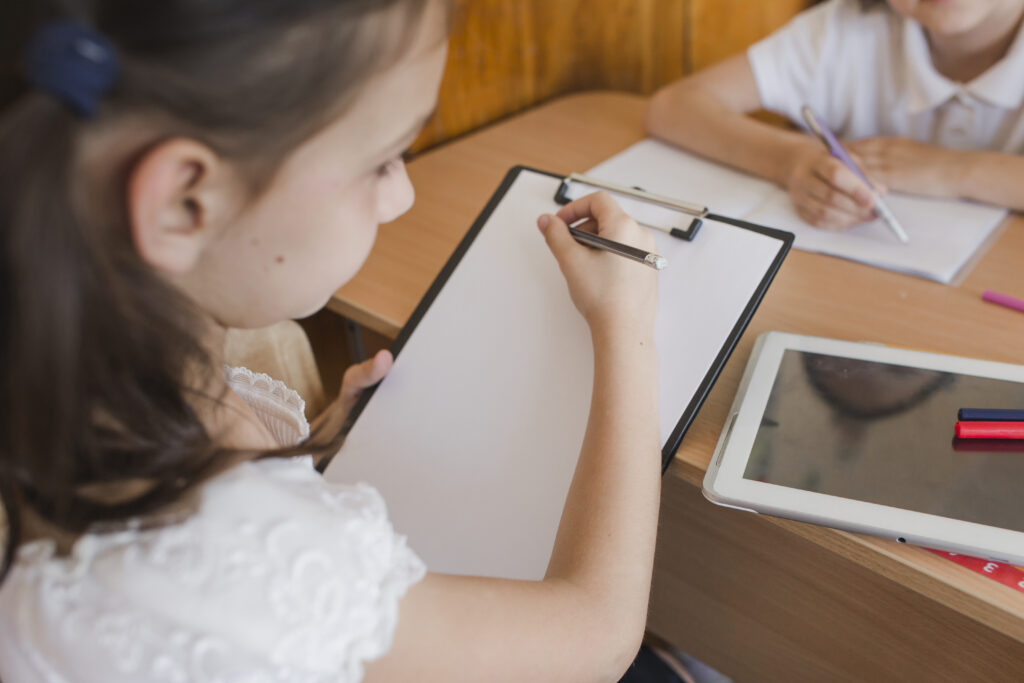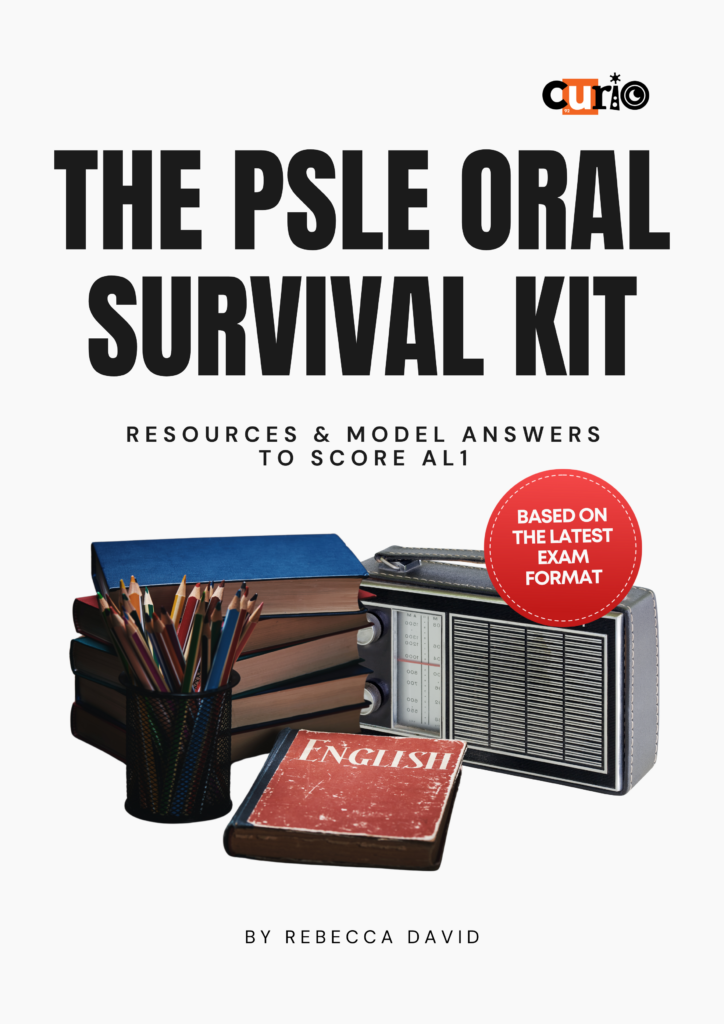Part A: Reading Aloud
Passage 1: School Assembly Announcement
Good morning, students. I hope you are all well and ready for the exciting week ahead. I would like to remind everyone that our annual Clean and Green Week begins next Monday. This is a special time when we come together as a school to care for our environment and learn the value of responsibility.
Each class will be assigned a different area to clean, such as the canteen, the garden, the school hall, and even the car park. These tasks will be done during your class’s designated time slot. Please remember to wear your PE attire and bring along gloves if you have them. The school will also provide additional cleaning materials for everyone.
We hope that through this event, you will understand how small actions can make a big difference. Working as a team to keep our school clean shows that we respect our surroundings and one another.
Passage 2: Library Notice
Dear students, we would like to inform you that the school library will be closed for upgrading works from the 15th to the 17th of July. During this period, students will not be able to borrow or return any books. We apologise for the inconvenience and encourage everyone to return all overdue books by the end of this week.
The upgrade will bring many exciting changes. One of the key features will be a brand-new reading corner with beanbags and soft lighting to make your reading experience more enjoyable. In addition, we will be adding more e-books and digital resources that you can access using your school tablets or at home.
We hope that these improvements will encourage more of you to visit the library and discover the joy of reading.
Passage 3: Personal Recount
Last weekend, my family and I made a trip to my grandmother’s house. She lives in a quiet kampung surrounded by tall trees and birdsong. The house is small but cosy, with a large yard filled with flowering plants and a chicken coop.
In the morning, I helped my grandmother sweep the yard and collect fresh eggs from the chickens. She showed me how to be gentle with the hens so they wouldn’t get frightened. After all the chores were done, we sat down to enjoy her famous homemade nasi lemak. The sambal was spicy, but I loved every bite.
That day made me realise how important it is to spend time with our grandparents. They have so much wisdom and love to share, and we must cherish every moment with them.
Passage 4: Informative Text
Mangroves are unique trees that grow in muddy coastal areas where most plants cannot survive. They have special roots that stick out of the soil like snorkels, allowing them to breathe even when the ground is flooded.
These trees are important for many reasons. Firstly, they help protect the coastline from strong waves and reduce the damage caused by storms. Secondly, they provide shelter for animals like crabs, mudskippers and birds. Mangrove forests are also homes to many small fish that grow up there before moving to the open sea.
In Singapore, places like Sungei Buloh Wetland Reserve are great examples of mangrove habitats. Visiting these places can teach us more about the environment and how we can help to protect it.
Passage 5: Speech for a Class Event
Good morning, teachers and friends. My name is Amanda, and I’m here on behalf of my class to share what we’ve learnt about healthy eating. We believe that eating well is just as important as studying hard or getting enough rest.
A balanced diet includes fruits, vegetables, whole grains, and enough protein from foods like fish, tofu or chicken. It is also important to drink plenty of water every day. One thing we noticed is that many of us enjoy snacks that are high in sugar, such as sweets and soft drinks. These should be eaten less often because they can affect our energy levels and health.
When we make good food choices, we feel stronger, more alert and ready to learn. So let’s all do our best to eat wisely and take care of our bodies!
Part B: Stimulus Based Conversation
Topic 1: School Canteen

Question 1: What would you do if you saw someone wasting food in the school canteen?
Question 2: What can schools do to encourage healthy eating habits among students?
Question 3: Why is food waste a concern around the world?
Topic 2: Helping Others

Question 1: What would you do if you saw an elderly person struggling to carry groceries?
Question 2: How can students be encouraged to volunteer in their neighbourhoods?
Question 3: Why is it important to help people in need?
Topic 3: Digital Devices

Question 1: What would you do if your friend was using a tablet during class without permission?
Question 2: What are some ways schools can teach students to use technology responsibly?
Question 3: What are some of the advantages and disadvantages of using technology in education?
Topic 4: Saving the Environment

Question 1: What would you do if you saw someone leaving the tap running in school?
Question 2: How can families work together to protect the environment?
Question 3: Why is protecting the environment important for future generations?
Topic 5: Sports and Teamwork

Question 1: What would you do if a teammate was feeling discouraged during a match?
Question 2: How can schools promote good sportsmanship?
Question 3: Why are sports events like the Olympics important for the world?
Answer Key
Set 1: Topic – School Canteen
Q1 : What would you do if you saw someone wasting food in the school canteen?
PEEL Answer:
Point: I would politely remind the person not to waste food.
Evidence: Wasting food is unfair to those who don’t have enough and also harms the environment.
Explanation: By speaking up, I can help my friend think more carefully about their actions.
Link: Everyone should take only what they can finish so we don’t waste precious resources.
Q2 : What can schools do to encourage healthy eating habits among students?
PEEL Answer:
Point: Schools can provide healthier food options and run fun programmes on nutrition.
Evidence: For example, cooking demonstrations and ‘fruit days’ can make healthy eating exciting.
Explanation: When students are involved, they learn better and are more likely to make good choices.
Link: Creating a healthy environment helps students develop good lifelong habits.
Q3 : Why is food waste a concern around the world?
PEEL Answer:
Point: Food waste is a serious global issue because many people still go hungry every day.
Evidence: It also leads to unnecessary use of water, land, and energy.
Explanation: Reducing food waste means we use resources wisely and help the planet.
Link: Everyone should play their part by not wasting food.
Set 2: Topic – Helping Others
Q1 : What would you do if you saw an elderly person struggling to carry groceries?
PEEL Answer:
Point: I would immediately offer to help them carry their groceries.
Evidence: It’s important to show kindness and respect to our elders.
Explanation: A small act like this can make their day much easier and safer.
Link: Helping others shows good values and builds a caring community.
Q2 : How can students be encouraged to volunteer in their neighbourhoods?
PEEL Answer:
Point: Schools and parents can encourage volunteering by organising community activities.
Evidence: Activities like beach clean-ups or visiting senior homes can be fun and meaningful.
Explanation: When students see the impact of their efforts, they become more willing to help.
Link: Volunteering builds character and teaches responsibility.
Q3 : Why is it important to help people in need, even if they live in other countries?
PEEL Answer:
Point: It’s important because we are all part of one world, and kindness should have no borders.
Evidence: Many countries face natural disasters or poverty and need global support.
Explanation: By donating or raising awareness, we show empathy and unity.
Link: Helping others brings hope and strengthens international friendship.
Set 3: Topic – Digital Devices
Q1 : What would you do if your friend was using a tablet during class without permission?
PEEL Answer:
Point: I would quietly remind my friend to put the tablet away.
Evidence: In the picture, I can see that the girl is focused on her writing but she also has a tablet on the table. She is looking at it and might be tempted to use it.
Explanation: Using devices in class without permission can distract others and affect learning. As a friend, I want to help them stay focused and follow the rules.
Link: Respecting class rules helps everyone learn better.
Q2 : What are some ways schools can teach students to use technology responsibly?
PEEL Answer:
Point: Schools can teach digital citizenship through lessons and real-life scenarios.
Evidence: Topics like cyberbullying, screen time, and online safety can be included.
Explanation: When students understand the risks and benefits, they use devices more wisely.
Link: Teaching responsible tech use prepares students for the future.
Q3 : What are some of the advantages and disadvantages of using technology in education?
PEEL Answer:
Point: Technology helps us learn faster, but it can also be distracting.
Evidence: With tools like educational videos and games, students learn in fun ways—but some may misuse devices.
Explanation: It’s important to balance screen time with offline learning.
Link: When used well, technology is a great help to students everywhere.
Set 4: Topic – Saving the Environment
Q1 : What would you do if you saw someone leaving the tap running in school?
PEEL Answer:
Point: I would quickly turn off the tap and remind the person to do so next time.
Evidence: In the picture, some students are washing their hands. I think they might be in the school canteen.
Explanation: Water is a precious resource, and we should not waste it. Small actions like this help conserve water and protect the Earth.
Link: Caring for the environment starts with daily habits.
Q2 : How can families work together to protect the environment?
PEEL Answer:
Point: Families can recycle, reduce waste, and use less electricity together.
Evidence: For example, they can switch off lights or reuse bags during grocery shopping.
Explanation: These actions teach children to be responsible from a young age.
Link: When families act together, it makes a bigger difference.
Q3 : Why is protecting the environment important for future generations?
PEEL Answer:
Point: It ensures that future generations have clean air, water, and a safe planet.
Evidence: If we don’t protect the Earth, natural disasters and pollution will get worse.
Explanation: We are borrowing the Earth from the future, so we must take care of it.
Link: A healthy planet is a gift we can pass on.
Set 5: Topic – Sports and Teamwork
Q1 : What would you do if a teammate was feeling discouraged during a match?
PEEL Answer:
Point: I would encourage them and remind them that they’re doing their best.
Evidence: In the picture, a boy is sitting on stadium steps with a football next to him. I think he is looking at a match being played. He looks a bit sad.
Explanation: Kind words can boost someone’s confidence during stressful moments. Supporting others helps the team stay strong and united.
Link: Teamwork is not just about winning, but caring for one another.
Q2 : How can schools promote good sportsmanship?
PEEL Answer:
Point: Schools can teach students to respect opponents and play fairly.
Evidence: During sports events, teachers can highlight the importance of honesty and teamwork.
Explanation: Students learn to value effort over winning.
Link: Good sportsmanship builds strong character.
Q3 : Why are sports events like the Olympics important for the world?
PEEL Answer:
Point: They bring people from different countries together in peace.
Evidence: Athletes from all over the world compete and celebrate one another’s talents.
Explanation: It shows that even with differences, we can unite through shared goals.
Link: Global sports events inspire unity, respect, and excellence.
Need More Practice?
I’ve created a resource with 20 updated passages + 60 stimulus questions + PEEL answers.
- Plus audio recordings they can practise with at home.
+No tuition required. - If your child is taking PSLE this year, this is the guide to help them read and speak with confidence.
+Grab your copy now on Amazon :

